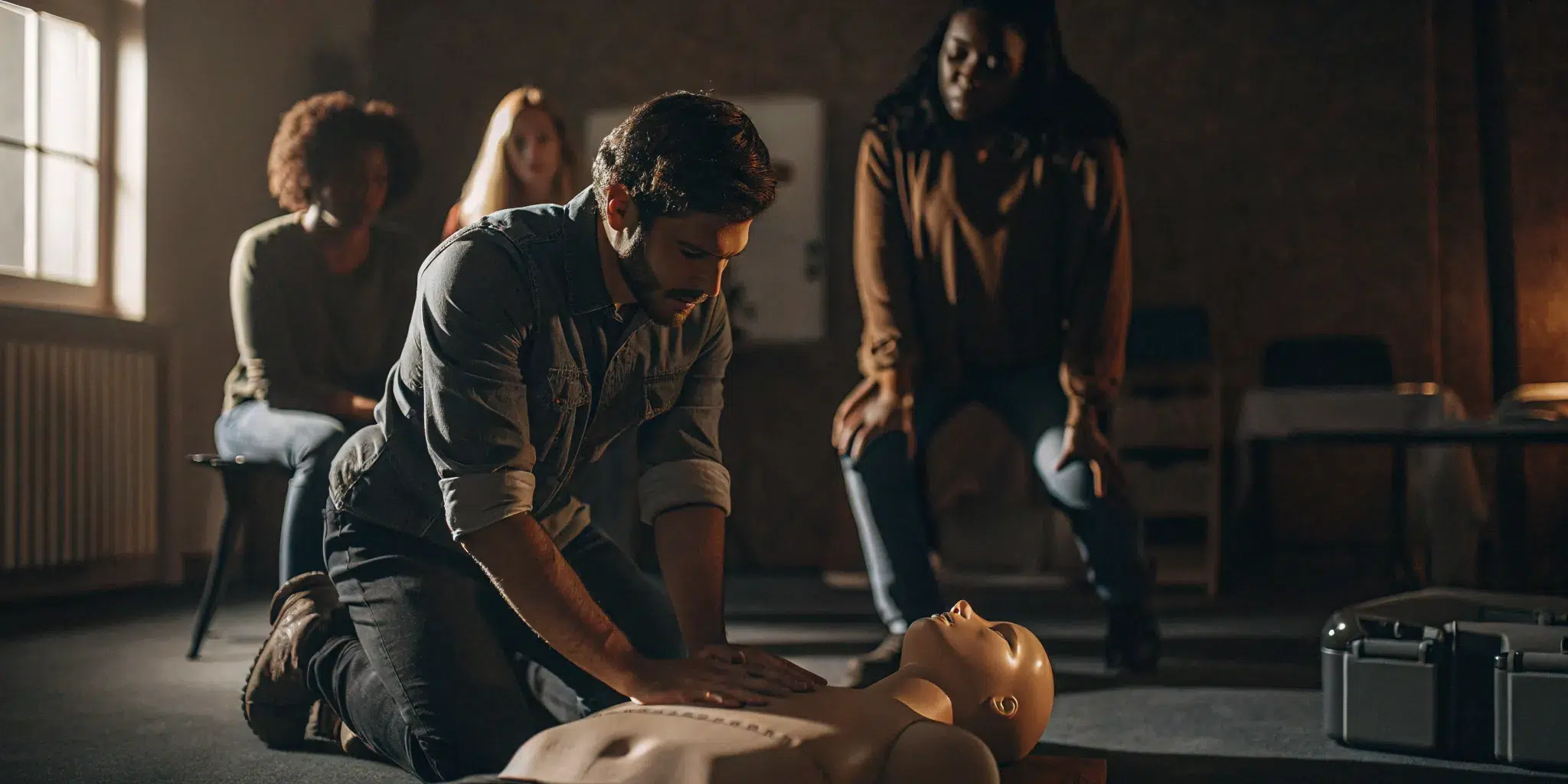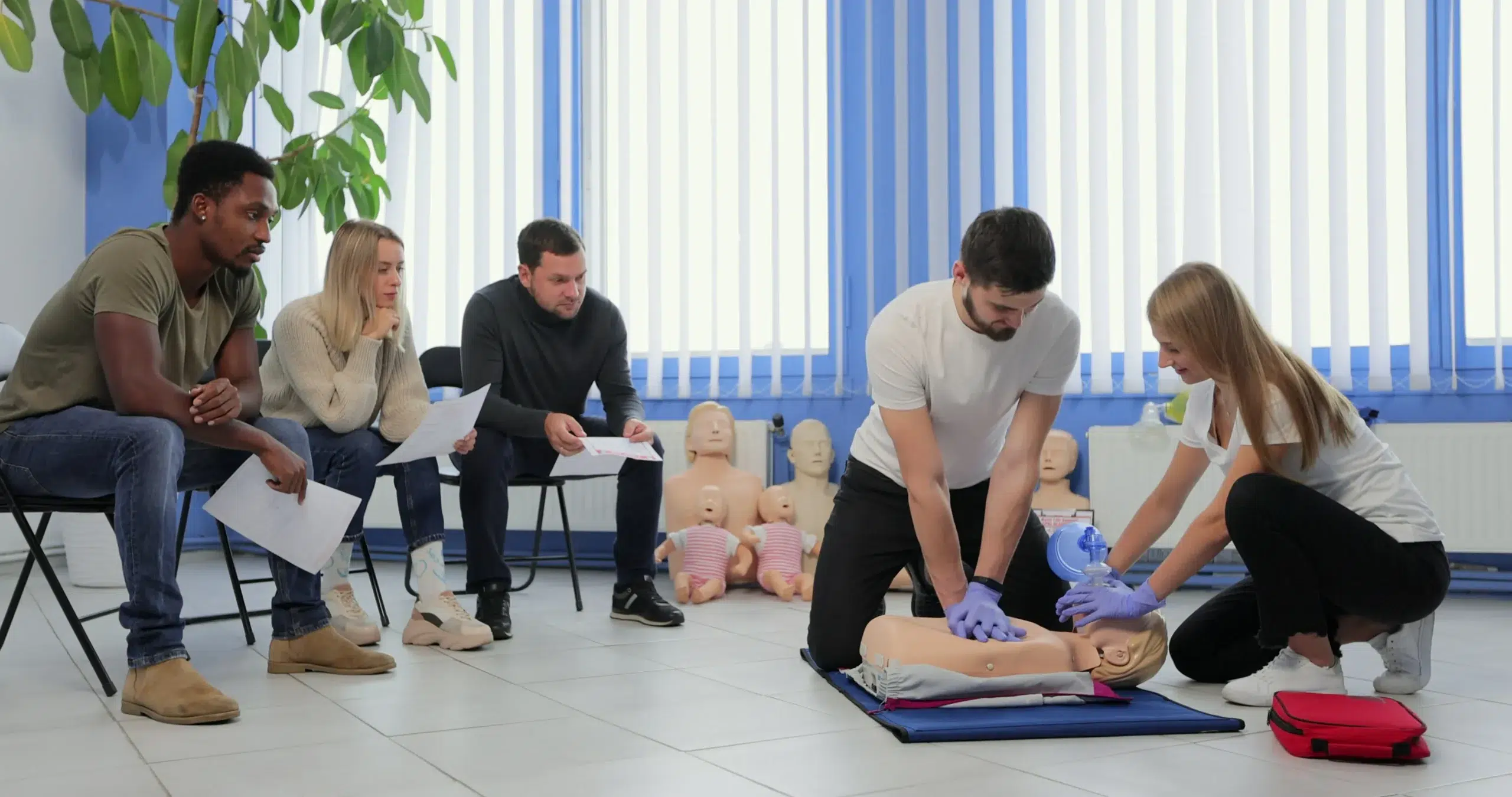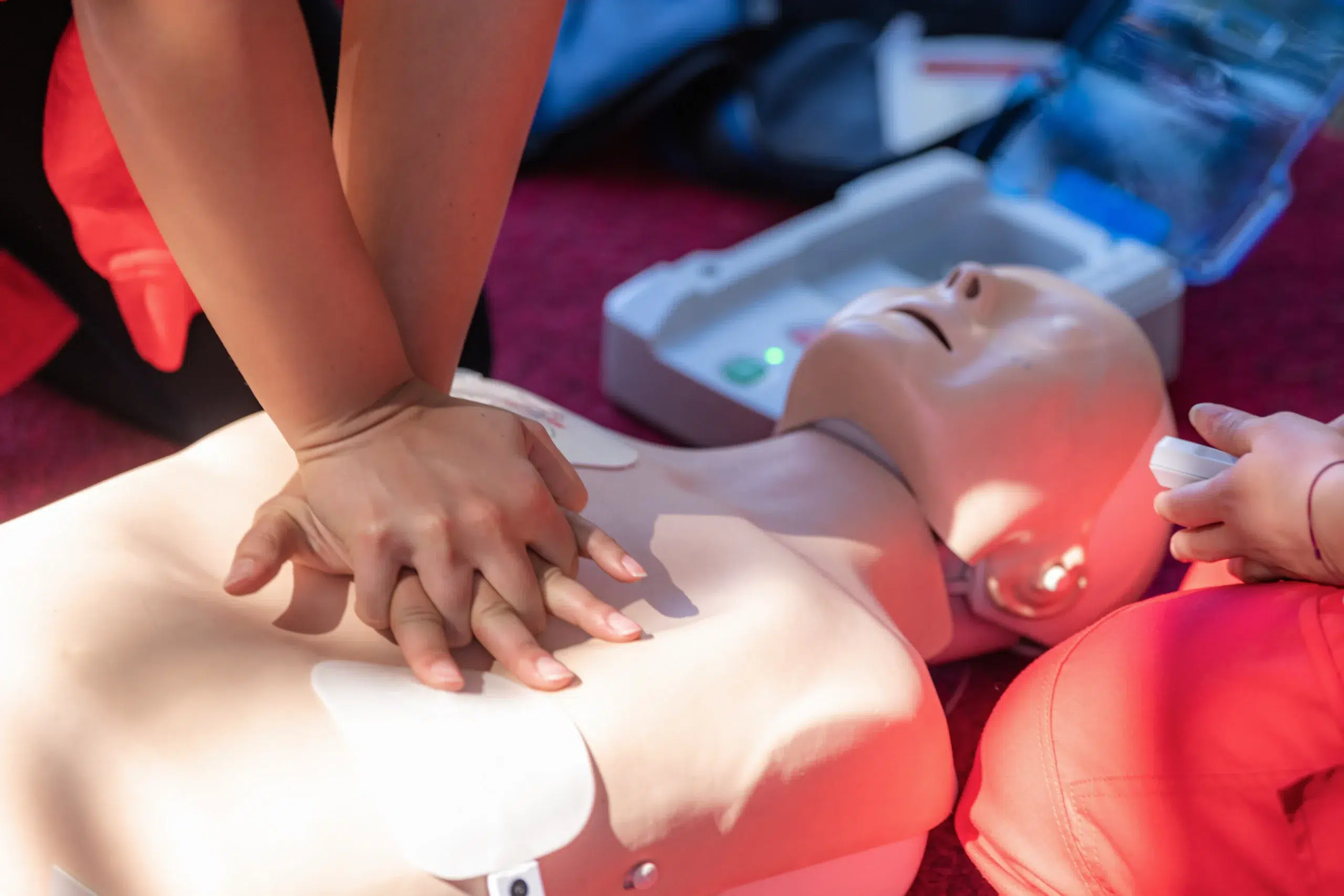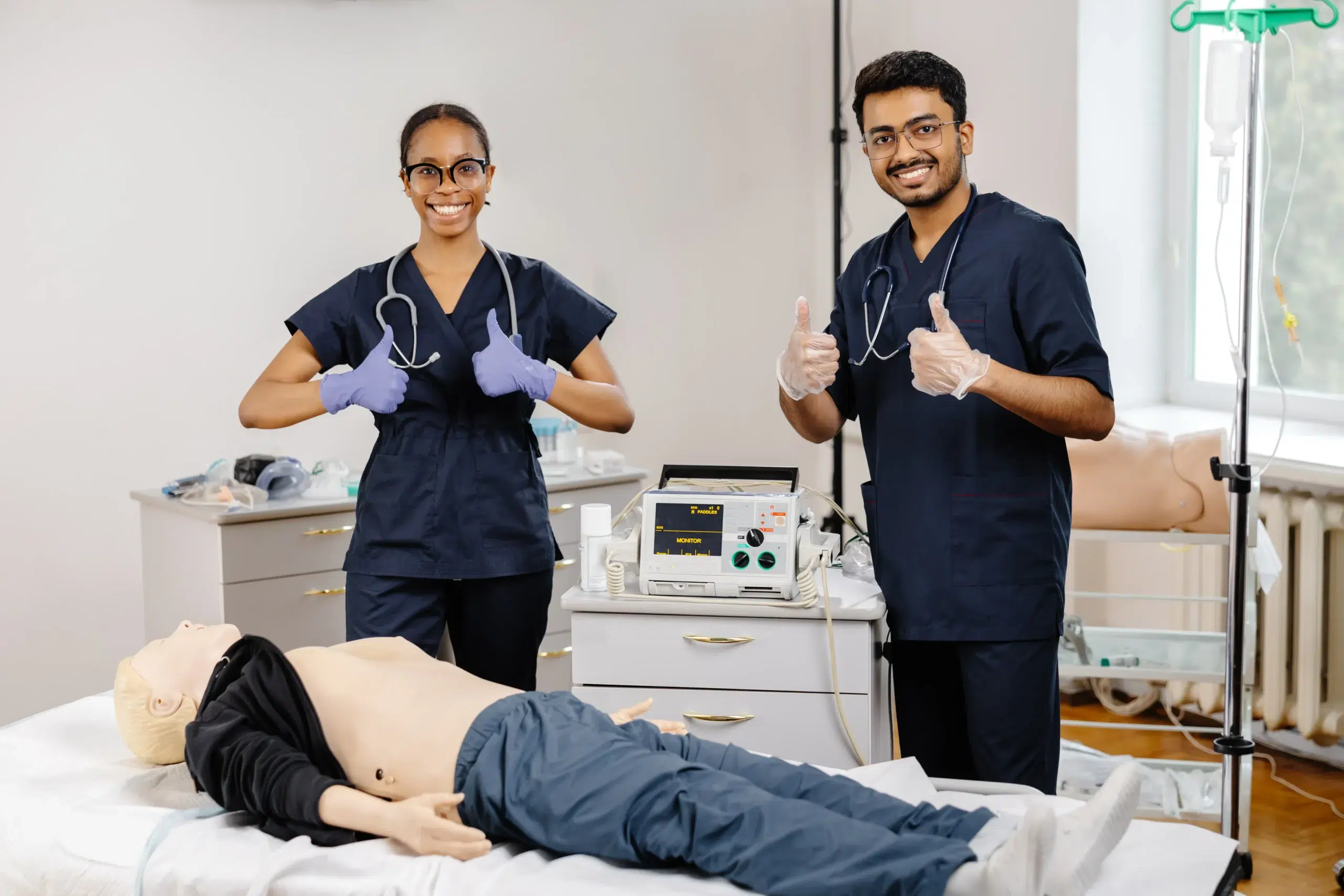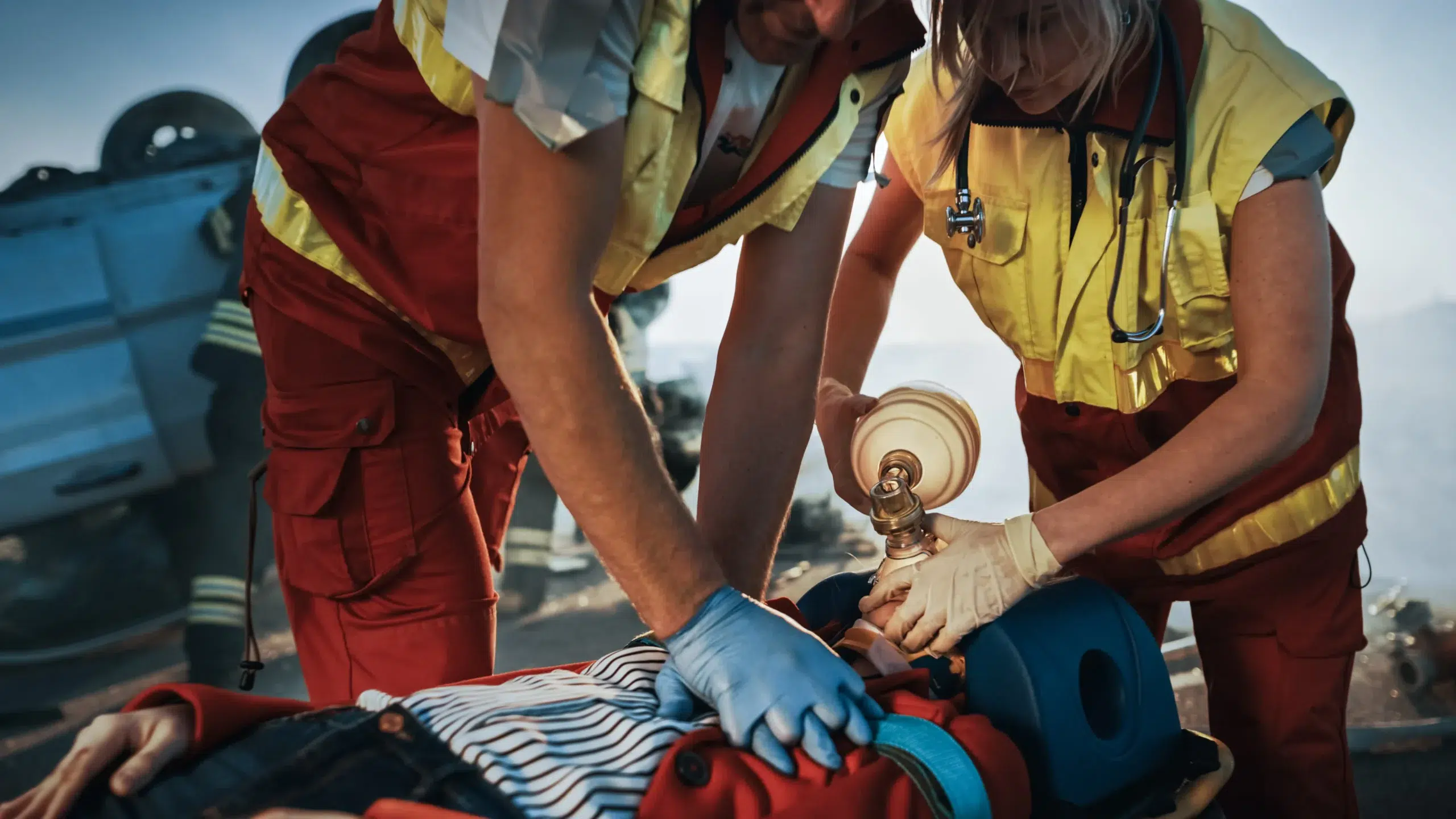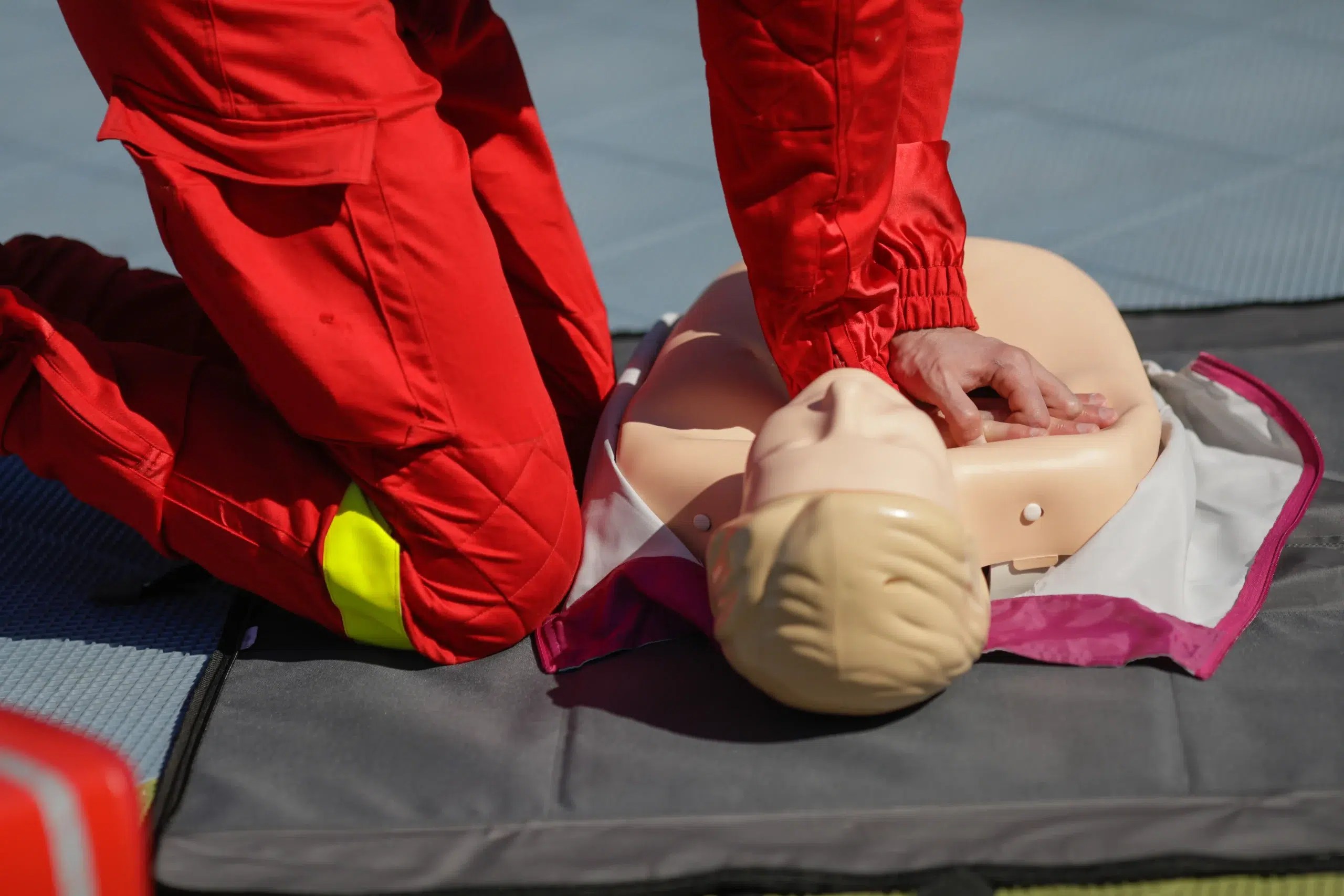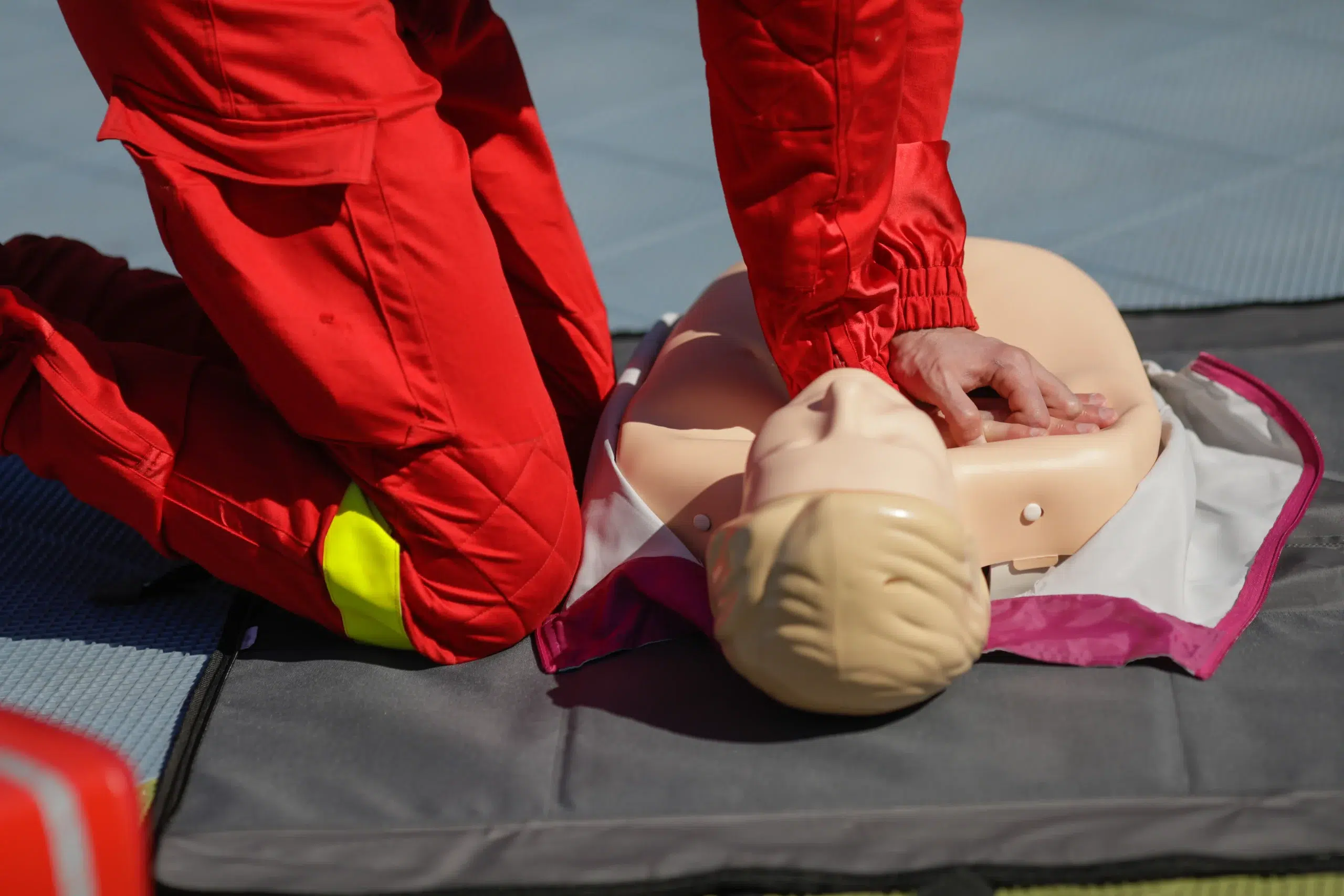Empowering yourself with life-saving skills is an investment in yourself, your community, and the well-being of those around you. BLS ACLS PALS training in San Jose provides the knowledge and hands-on practice necessary to respond effectively in medical emergencies. This guide will walk you through the different levels of life support training, explaining the distinctions between BLS, ACLS, and PALS, and guiding you toward the right certification for your needs. We’ll explore the training process, discuss costs and schedules, and highlight the importance of choosing an accredited training provider. We’ll also address common misconceptions about these certifications and offer practical advice for overcoming training challenges. Whether you’re a healthcare professional, a student, or simply someone who wants to make a difference, this guide will help you find the right BLS ACLS PALS training in San Jose.
Key Takeaways
- Choose the right certification: BLS provides fundamental life-saving skills, ACLS addresses complex cardiovascular emergencies, and PALS focuses on the specific needs of infants and children. Select the course that aligns with your healthcare role and career aspirations.
- Find a quality training program: Seek out accredited providers with experienced instructors, appropriate class sizes, and convenient learning formats. Consider factors like cost, schedule, and the availability of online or blended learning options.
- Stay current: Maintaining your certification through recertification and continuing education is crucial. Regularly review the latest guidelines and pursue ongoing learning opportunities to keep your skills sharp and your knowledge up-to-date.
What are BLS, ACLS, and PALS?
These three certifications represent different levels of life support training, each designed for specific situations and healthcare roles. Understanding the distinctions helps you choose the right training for your needs.
What is BLS?
Basic Life Support (BLS) provides the foundational skills needed to respond to life-threatening emergencies. BLS training covers core techniques like CPR, using an automated external defibrillator (AED), and relieving choking. It emphasizes early recognition and intervention to improve patient outcomes. For those located near San Jose, you can find more information on our BLS certification courses.
What is ACLS?
Advanced Cardiovascular Life Support (ACLS) builds upon the fundamentals of BLS. It equips healthcare providers with the knowledge and skills to manage complex cardiovascular emergencies. ACLS training goes beyond basic CPR, covering advanced airway management, identifying pre-arrest conditions, and implementing post-resuscitation care. Check out our ACLS courses available in San Jose.
What is PALS?
Pediatric Advanced Life Support (PALS) focuses specifically on the resuscitation and stabilization of infants and children. This specialized training covers pediatric assessment, age-appropriate CPR and AED use, and advanced airway management tailored to young patients. PALS certification addresses the unique physiological differences between children and adults in emergency situations. Our PALS certification courses are designed to meet these specific needs.
Who needs these certifications?
BLS certification is generally required for all healthcare providers, forming the cornerstone of emergency medical response. ACLS and PALS certifications are essential for professionals working in critical care settings, emergency departments, and intensive care units. These roles often involve managing complex cases and require specialized life support skills. Physicians, nurses, paramedics, and respiratory therapists are among the professionals who benefit from these advanced certifications.
Where to Find BLS, ACLS, and PALS Training in San Jose
Finding the right training center for your BLS, ACLS, and PALS certifications is an important first step. San Jose offers several reliable options. Here’s a closer look at some of the leading providers:
Safety Training Seminars
Safety Training Seminars offers a comprehensive range of American Heart Association (AHA) certified courses, including BLS, ACLS, and PALS. They also provide CPR and First-Aid training along with more specialized courses like NRP and EMSA. This makes them a convenient option for healthcare providers, students entering the medical field, and anyone looking to develop essential life-saving skills. Their low price guarantee ensures competitive pricing.
CPR Training Center
The CPR Training Center in San Jose focuses specifically on CPR training and certification. They offer AHA-certified courses in BLS, ACLS, PALS, and First Aid, allowing them to provide focused instruction and ensure students receive high-quality training aligned with the latest AHA guidelines.
American Red Cross
The American Red Cross is a well-known provider of BLS certification and recertification in San Jose. They offer flexible learning options, including in-person classes and a blended “Simulation Learning” format that combines online coursework with in-person skills sessions. This hybrid approach can be helpful for busy schedules.
Bay Area CPR
Bay Area CPR offers BLS, ACLS, and PALS classes for both individuals and groups. Discounts are available for group registrations. They also provide on-site group training, bringing the instruction directly to your organization. Same-day certification upon completing the skills test is a convenient benefit.
NHCPS
NHCPS offers a free online ACLS course to help you prepare for the ACLS certification or recertification exam. While the course itself doesn’t provide certification, it’s a helpful resource for refreshing your knowledge and practicing key concepts based on the 2015-2020 AHA guidelines. You’ll still need to complete a certified skills test through an approved provider.
What to Expect During Training
Getting certified in BLS, ACLS, or PALS involves a blend of learning and hands-on practice. Here’s a glimpse of what you can expect during each course:
BLS Course Overview
Basic Life Support (BLS) training equips you with essential skills to respond to life-threatening emergencies. You’ll learn how to perform high-quality CPR for adults, children, and infants, including using an automated external defibrillator (AED) and relieving choking. While often associated with healthcare providers, BLS certification is valuable for anyone who wants to be prepared to help in a crisis. It covers basic airway management and rescue techniques, empowering you to act quickly and confidently.
ACLS Course Overview
Advanced Cardiovascular Life Support (ACLS) builds upon the foundation of BLS. This course is designed for healthcare professionals, such as physicians, nurses, and paramedics, who manage cardiopulmonary arrest and other cardiovascular emergencies. ACLS training delves into more complex algorithms for treating cardiac arrest, stroke, and other serious conditions. It emphasizes effective teamwork, communication, and critical thinking in high-pressure situations.
PALS Course Overview
Pediatric Advanced Life Support (PALS) focuses on the specific needs of infants and children facing life-threatening illnesses or injuries. This course covers pediatric assessment, age-appropriate CPR and AED use, and advanced airway management techniques tailored for young patients. PALS certification is essential for healthcare providers who regularly work with children, ensuring they have the specialized knowledge and skills to provide effective care.
Hands-on Practice and Simulations
Regardless of the course you choose—BLS, ACLS, or PALS—expect a significant emphasis on hands-on practice and simulations. You’ll work with mannequins and other training equipment to develop muscle memory and confidence in performing life-saving techniques. Safety Training Seminars offers a supportive learning environment where instructors provide guidance and feedback, helping you master the skills necessary to respond effectively in real-world emergencies. Many programs incorporate video demonstrations and self-directed learning to enhance your understanding and retention of the material.
Costs, Schedules, and Learning Options
Understanding the costs, available schedules, and various learning options for BLS, ACLS, and PALS courses can help you make informed decisions about your training. Let’s break down what you can expect in San Jose.
Price Ranges
Course fees for BLS, ACLS, and PALS certifications vary based on the provider and any current promotions. You’ll find that ACLS and PALS certifications often fall within a similar price range. At Safety Training Seminars, for example, both ACLS and PALS certification/recertification are priced at $119 (currently discounted from $169). Bundled options, like the ACLS & PALS combination, are often available at a discounted rate. Sometimes, bundling courses unlocks extra perks, such as free BLS certification when you enroll in the PALS and ACLS package. Check our course calendar for the latest pricing.
Flexible Schedules
Balancing professional and personal commitments with training can be tricky, so training centers in San Jose offer flexible schedules. Many providers offer daily classes, including weekends, with sessions running from early morning to evening. This flexibility makes it easier to find a time that works for you, whether you’re a healthcare professional working shifts or a student with a packed academic schedule. Safety Training Seminars offers a range of course times to fit your needs.
Online and Blended Learning
Learning preferences vary, and thankfully, so do the training formats. Traditional in-person classes provide a structured learning environment, while blended learning options combine online coursework with in-person skills sessions. This hybrid approach offers the convenience of online learning with the essential hands-on practice required for these certifications. Explore the different learning formats available to find the best fit for your learning style. For those seeking a primarily online option, our unique RQI program allows medical professionals to achieve certification through convenient online courses and skills tests.
Discounts and Bundles
If you’re looking to get certified in multiple areas or are part of a group needing training, look for discounts and bundled packages. Many training providers offer reduced rates for combined courses or group enrollments. This can be a cost-effective way for organizations to train their teams or for individuals seeking multiple certifications. Check with providers like Safety Training Seminars about our low price guarantee and any available discounts.
Get Certified: The Process
This section walks you through the certification process for BLS, ACLS, and PALS courses offered by Safety Training Seminars in San Jose. We’ll cover everything from prerequisites and the steps involved to what to expect during exams and how to maintain your certification.
Steps to Certification
The certification process at Safety Training Seminars is straightforward. First, register for a course that fits your needs—BLS, ACLS, PALS, CPR, or First Aid. We offer a variety of schedules to accommodate your busy life. Once registered, you’ll receive a confirmation and details about your chosen course. Attend the course, either in person at our San Jose location or through our convenient online learning platform for RQI programs. After successfully completing the course and any required exams, you’ll receive your certification.
Prerequisites
While anyone can benefit from these life-saving skills, certain courses have prerequisites. For example, ACLS builds upon the foundational knowledge of BLS, so current BLS certification is often a prerequisite for ACLS training. It’s important to check the specific course requirements when registering. If you’re new to healthcare training, we offer the basic courses you need to get started. BLS training isn’t just for healthcare professionals—it equips anyone with the skills to use AEDs, manage airways, and assist with choking.
Exams and Skills Tests
Both written exams and hands-on skills tests are essential parts of the certification process. These assessments ensure you can apply the techniques learned during the course. For our in-person courses, instructors guide you through the skills tests, providing feedback and support. Our RQI program offers a unique approach to skills testing: you’ll use a voice-activated mannequin for a self-directed skills test, with instructor support available by phone if needed.
Validity and Renewal
BLS certifications are typically valid for two years. A standard BLS course can be completed in about 4.5 hours. While often perceived as permanent, ACLS certification also requires recertification to keep healthcare providers current with the latest advancements in emergency cardiac care. Regular renewal ensures you’re always prepared to provide the most effective care. Check our website for specific recertification options and schedules.
Choose the Right Training Program
Finding the right training program involves more than just picking a course title. It requires careful consideration of several key factors to ensure you receive high-quality instruction and a recognized certification. Here’s what to look for:
Accreditation
Accreditation is essential. A recognized certifying body, like the American Heart Association, ensures your certification is widely accepted by employers and healthcare institutions. For example, ACLS certification demonstrates adherence to the latest advancements in emergency cardiovascular care. Safety Training Seminars offers American Heart Association-certified courses in San Jose, giving you confidence in the quality and recognition of your training. Confirming accreditation should always be your first step.
Instructors
Experienced, knowledgeable instructors can significantly impact your learning. Instructors should not only be certified but also possess excellent communication skills and a passion for teaching. Look for programs with instructors who actively engage students and foster a supportive learning environment. Ask about instructor qualifications and experience before registering for a course. The instructor’s expertise directly impacts your ability to confidently apply your new skills.
Class Size
Consider class size when choosing a program. Smaller classes often allow for more personalized instruction and individual feedback, which can be especially helpful for the hands-on skills practice crucial to BLS, ACLS, and PALS training. Safety Training Seminars offers a variety of class sizes to accommodate both individual learners and groups, allowing you to find the best fit for your needs. Check if the program offers discounts for group registrations.
Unique Features
Look for programs that offer features beyond the standard curriculum. These might include online learning components, blended learning options, or the use of specialized training equipment. For example, Safety Training Seminars utilizes the RQI program, which offers a flexible, technology-driven approach to skills testing and recertification. Features like these can enhance your learning and make training more convenient. Consider your learning preferences and schedule when evaluating these additional features.
Why Get Certified?
Getting certified in BLS, ACLS, or PALS isn’t just about adding credentials to your name—it’s about gaining skills and knowledge that can significantly impact your career, the lives of your patients, and your ability to respond effectively in emergencies. Let’s explore the value of these certifications.
Career Advancement
For healthcare providers, these certifications are often essential for career growth. As Medtigo explains, ACLS training is crucial for any healthcare professional who might respond to a cardiac emergency. Having these certifications demonstrates a commitment to high-quality patient care and can create opportunities for more specialized roles and greater responsibilities. Whether you’re a nurse, physician, or emergency medical technician, holding these certifications can give you a competitive edge. Consider our American Heart Association BLS courses to enhance your qualifications.
Patient Outcomes
These certifications equip you with the skills to provide the best possible care during critical situations. ACLS, as described by Cascade Training, builds upon the foundational skills of BLS, adding advanced techniques for managing cardiac emergencies. BLS certification covers essential life-saving procedures, including using an AED, managing airways, and assisting someone who is choking. By mastering these skills, you directly contribute to improved patient outcomes and increase the chances of survival. Our CPR and First-Aid courses provide comprehensive training in these fundamental skills.
Emergency Preparedness
Beyond the hospital setting, these certifications empower you to respond effectively in any emergency. Cascade Training highlights the relevance of ACLS for a wide range of medical professionals, including those working in emergency rooms, anesthesiology, critical care, and as paramedics. Being prepared to handle emergencies instills confidence and allows you to act quickly and decisively when seconds count, whether you’re on the job or facing an unexpected situation in your daily life. Our low price guarantee ensures that these essential skills are accessible to everyone.
Debunking Training Myths
Let’s clear up some common misconceptions about BLS, ACLS, and PALS certifications. These misunderstandings can prevent people from getting the training they need, so let’s set the record straight.
Myth: BLS is Only for Healthcare Professionals
While BLS is essential for healthcare providers, it’s valuable for anyone who wants to be prepared for a medical emergency. BLS certification equips you with life-saving skills like CPR, using an AED, and helping someone who is choking. These skills can be crucial in any setting, from the workplace to your own home. Think of teachers, coaches, lifeguards, or even parents—anyone could benefit. Learn more about our BLS certification courses.
Myth: ACLS Certification is Permanent
ACLS certification requires regular renewal. Medical knowledge and best practices are constantly evolving, and recertification ensures healthcare providers stay current. This ongoing learning is crucial for providing excellent patient care. Our ACLS courses in San Jose cover the recertification process.
Myth: PALS is Only for Pediatric Specialists
PALS benefits any healthcare professional who might respond to a pediatric emergency. While pediatric specialists need this training, it’s also relevant for nurses, paramedics, and other providers who may encounter children in cardiac or respiratory distress. PALS training provides the knowledge and skills to manage these situations effectively. Our PALS certification courses prepare a wide range of healthcare professionals.
Myth: ACLS is Just Advanced CPR
ACLS builds upon CPR but encompasses much more. It covers a broader range of interventions, including using medications, managing airways, and understanding heart rhythms. It’s a comprehensive approach to managing cardiovascular emergencies. Our ACLS training provides medical professionals with the advanced knowledge they need.
Maintain Your Certification
Once you’ve earned your BLS, ACLS, or PALS certification, staying current is key. Medicine is a constantly evolving field, so keeping your knowledge and skills sharp ensures you’re prepared to provide the best possible care.
Stay Updated with Guidelines
Regularly reviewing the latest guidelines from the American Heart Association is crucial for providing effective care. These guidelines are updated periodically to reflect new research and best practices. Staying informed about any changes ensures your techniques align with current standards. Even small adjustments in technique can significantly impact patient outcomes.
Recertification
Your BLS, ACLS, and PALS certifications each have specific renewal requirements. Generally, BLS certifications are valid for two years, and renewal courses are available for those whose certifications are nearing expiration (within 30 days). These renewal courses are shorter than the initial certification course. Recertification not only validates your skills but also demonstrates your commitment to providing high-quality care. It’s a valuable investment in your professional development. Check with your certifying organization or employer for specific recertification requirements. Safety Training Seminars offers a variety of renewal courses to help you maintain your certifications.
Continuing Education
Beyond recertification, ongoing learning is essential. Consider taking refresher courses, attending workshops, or participating in online learning modules. This continuous learning helps reinforce your existing skills and introduces you to new advancements in resuscitation science. Resources like those offered by RQI Partners can be valuable tools for staying up-to-date. By actively pursuing continuing education, you demonstrate a dedication to lifelong learning and a commitment to providing the highest standard of care. Our unique RQI program allows medical professionals to achieve recertification through convenient online courses and skills tests.
Overcome Training Challenges
Life gets in the way, but don’t let it stop you from gaining these essential skills. Here’s how to overcome common training challenges:
Scheduling Solutions
Juggling work, family, and other commitments can make finding time for training tough. Fortunately, many training centers understand this and offer courses designed to fit busy lifestyles. Safety Training Seminars, for example, offers daily classes, including weekends, with options ranging from early morning to evening. This flexibility allows you to choose a time that works best, minimizing disruptions to your schedule. Check out their CPR and First Aid courses for more information.
Addressing Physical Limitations
If you have any physical limitations, know that you’re not alone. It’s important to consider your physical abilities before registering for a course. Reach out to the training center to discuss any concerns and explore potential accommodations. If you experience fatigue or injury during the course, don’t hesitate to contact the office to reschedule. Your well-being is paramount. Safety Training Seminars has a dedicated customer service team available to answer your questions.
Balancing Learning Formats
Not everyone learns the same way. Some people thrive in a traditional classroom setting, while others prefer the flexibility of online learning. Many training centers now offer blended learning options, combining online coursework with in-person skills sessions. This approach allows you to learn the material at your own pace online and then practice your skills in a hands-on environment. This hybrid approach can be a great way to balance the demands of learning with your other commitments. If you’re part of an organization seeking training, some providers even offer customizable training that incorporates local protocols. For those looking for the best value, Safety Training Seminars offers a low price guarantee.
Related Articles
- BLS CPR Classes in San Jose, CA – San Jose CPR Classes
- AHA ACLS Classes in San Jose, CA – San Jose CPR Classes
- AHA PALS Classes in San Jose, CA – San Jose CPR Classes
- CPR, BLS, ACLS, PALS, & First-aid Courses in San Jose, CA
- RQI Classes in San Jose, CA – San Jose CPR Classes
Frequently Asked Questions
What’s the difference between BLS, ACLS, and PALS? BLS teaches basic life support skills like CPR and using an AED. ACLS is more advanced, focusing on complex cardiovascular emergencies. PALS specifically addresses the life support needs of infants and children. The right certification for you depends on your role and the types of emergencies you might encounter.
How do I choose the right training program in San Jose? Look for programs with recognized accreditation (like the American Heart Association), experienced instructors, and a class size that suits your learning style. Consider whether you prefer in-person classes, blended learning, or online options. Also, compare costs and check for any available discounts.
What can I expect during a BLS, ACLS, or PALS course? Expect a mix of classroom learning, hands-on practice, and skills assessments. You’ll learn the necessary techniques and then practice them on mannequins and other training equipment. Instructors will provide guidance and feedback to help you master the skills.
How much do these certifications cost, and how often do I need to renew them? Costs vary depending on the provider and the specific course. BLS certification is typically valid for two years. ACLS and PALS certifications also require renewal, so check with your certifying body for specific requirements. Many providers offer discounts for bundled courses or group registrations.
What if I have scheduling conflicts or physical limitations that make training difficult? Many training centers offer flexible schedules, including weekend and evening classes, to accommodate busy schedules. If you have physical limitations, contact the training center to discuss possible accommodations. They can often work with you to find a solution that meets your needs.
This article was written for free by MEGA SEO.


